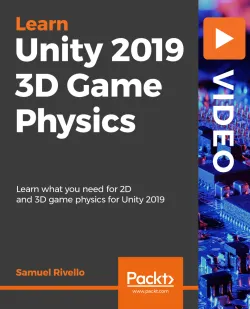MP4 | Video: AVC 1920×1080 | Audio: AAC 48kHz 2Ch | Duration: 3 Hours 12M | 628 MBGenre: eLearning | Language: EnglishPhysics is really important for game programmers who want to add realism and functionality to their games. Collision detection, in particular, is a problem that affects all game developers, regardless of the platform, engine, or toolkit they use. This course will help you to understand game physics better. You will practice creating your own physics components and improve your knowledge of Newton’s Laws of Motion and their applications to game development. This course will teach you the concepts and formulas behind collision detection. You will also be taught how to build a simple physics engine, where rigid body physics is the main focus, and learn about intersection algorithms for primitive shapes. You will be implementing 2D and 3D primitives, and we’ll show you how to perform effective collision tests and cover one of the harder areas of game development—collision detection and resolution. Further on, you will learn what a physics engine is, how to set up a game window, and how to implement rendering. You’ll also find out how to implement a rudimentary physics engine, which you can use to build an “Angry Birds” type of game or a more advanced game. By the end of this course, you will have gained confidence in translating theories of physics into working game code. You will have implemented all primitive and some advanced collision tests, and you will be able to read on geometry and linear Algebra formulas to take forward to your own games!

